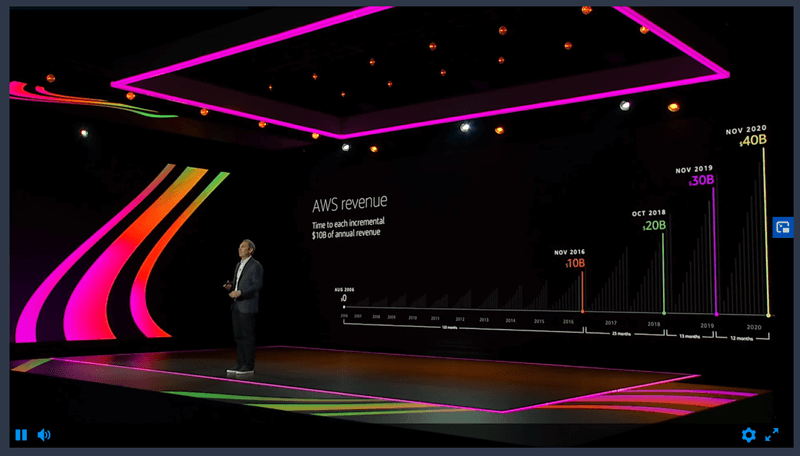7 AWS predictions As Jassy moves up what’s next for AWS?

Due to advancement in technology, today we have several products and technologies. This has led to an increase in the use of these products and high demands from users. For obvious reasons, small and big businesses alike are growing. Nowadays more and more a number of businesses are interlinked, they act as a chain.
Companies these days are trying to be as efficient as they can be, provide customers with good and polished service as well as maximizing their profit.
What are the new technologies involved in businesses these days?
- Artificial Intelligence(AI)
- Cloud Computing
- Digital Marketing
- Machine Learning(ML)
- Internet of Things(IoT)
WHAT IS AWS?
AWS is a cloud computing platform that is evolving rapidly by following the AWS training. More and more number of individuals and companies are getting their business integrated into cloud computing.
Benefits of using AWS(for companies/businesses)
- Helps in cost reduction
- Gives quick results
- Reaching customers becomes easy
There are a wide number of jobs that are available to AWS trainees, these are:
- Cloud System Engineer
- Support Engineer
- Cloud software integrator
- DevOps Engineer
Benefits of learning AWS(for individuals)
- Due to an increase in competition, usually certified individuals (of AWS certification) are preferred over non-certified ones. So learning AWS is definitely a bonus.
- Demands for individuals with AWS training has grown by manifolds since the last 5 years.
Which degree of certification should you start with and why this is one of our most common questions so let’s go ahead and answer it. The answer to that which we give to most of our students is that you should start with the Amazon Web Services certified Solutions Architect associate level exam. Why is that the reason? Why we usually recommend the certification exam is because it’s the number one, it’s the most popular and the reason for that is because it has the breadth of Integrative Services that it covers, so in order to pass that certification exam you really have to understand the Amazon Web Services Platform fairly. Well the other associate level exams are usually a little bit more specific, so for example the certified developer and certified Sys Ops level exams are usually a little bit more specific, they have a specific niche like Sys Ops is going to be around metrics monitoring, elasticity, scalability, whereas the certified Solutions Architect has a wide breadth of services and features that you have to know in order to pass the exam so it’s a great introductory level an exam that gives you that introduction you need and that baseline knowledge that you need on Amazon Web Services in order to get an AWS job. If someone comes to me and says this is my day to day job and my day to day job involves creating code around the area API, so my code needs to understand how to interact with a degree of services. API is for how to use the SDKs for different languages like PHP Ruby or anything. One should start with the Amazon Web Services certified developer because that one focuses not on coding itself but on how to code interacts with the platform the aliasa platform so if that is their day-to-day job then starting with the CSA may not be the best option instead they should probably start with the certified the developer now if again they need to focus instead on setting up monitoring metrics billing figuring out how billing works on AWS figuring out how scalability elasticity how availability fault-tolerance and things like how those work and they need to implement that and they in their day-to-day job then they should go with the sis table stood minister now that one I would argue is one of the hardest of the three associate level exams so even if you’re in a situation sometimes it’s best to start with the CSA or certified Solutions Architect but like I said it kind of depends on what your day-to-day job is if you’re just coming at it from the perspective that your the employer needs you to have an Amazon Web Services certification.
Usually the answer is the CSA certified Solutions Architect if you don’t have or if you don’t currently work in AWS or you don’t have any specific goals with AWS again this GSA is going to be your best choice so that is the answer we give probably99% of the time then after that there are the professional level exams and the speciality level exams which were recently released out of the beta. So let’s touch on those just a little a bit but after you pass an associate level exam assuming you go with the CSA should you go and take the other associate level exams or should you take the professional level exam a lot of times people go from the CSA associate to the other two Sys Ops standard certified developer associate exams because that gives them the box , which is having all three of the associate level exams, otherwise what you could do is go straight to the certified Solutions Architect professional level exam if you would like to have a professional level certification under your belt but keeping in mind the professional level exams especially the CSA professional is a very tough exam, so having the other associate level exams can help you fill in more gaps or you get used to the AWS exam format which can help you pass the professional level exam instead of diving straight into it. Now if you start with the CSA associate, you can’t even take the certified DevOps engineer professional exam unless you also take either the CDA certify developer or thesis office administrator exam.






